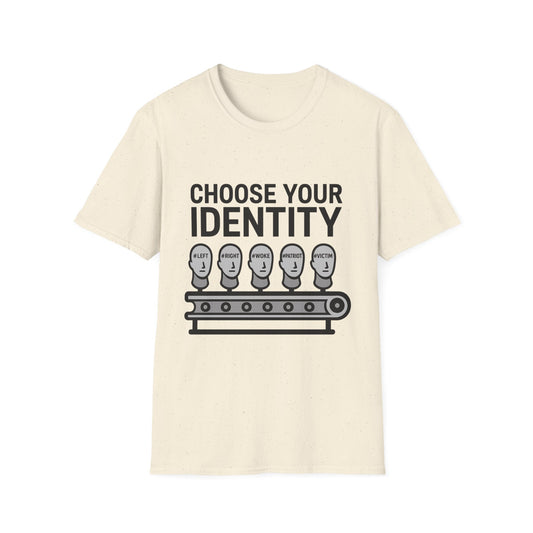
The Great Internet Blackout: What Happens When the Grid Fails?
The Great Internet Blackout: What Happens When the Grid Fails?
We’ve built our entire world on invisible threads. Wi-Fi. Satellites. Cell towers. Fiber optics humming beneath our feet like lifelines. The internet isn’t just a tool anymore—it’s the nervous system of modern life. It powers your bank. Your grocery store. Your job. Your government. Your memories. Your conversations. Your entertainment. Your identity.
So what happens when it goes dark?
This isn’t a sci-fi script or doomsday fantasy. It’s a real possibility. Whether it’s a cyberattack, solar flare, government kill switch, or just system-wide failure—the internet blackout is coming. And when it does, everything collapses.
Not slowly. Not with warning. Instantly.
Imagine waking up and your phone has no signal. Your Wi-Fi blinks red. You refresh your feed—and nothing loads. You restart your phone. Still nothing. You try to send a text. Nothing goes through. You drive to Starbucks—closed. You try an ATM—offline. You pull into a gas station—no credit cards, no digital payments, no pumps.
Panic sets in by day two. Not because of zombies. But because nobody knows what the hell to do.
We’ve outsourced everything to the cloud.
You don’t remember anyone’s phone number. You don’t carry cash. You don’t know how to read a map. You don’t even know how to contact your friends without apps. Your entire world was stored on a server farm in Utah or a satellite in low-earth orbit. And now? It’s gone.
And it’s not just you. It’s hospitals. Airports. Food supply chains. Water plants. Emergency services. All of it is now internet-dependent. Which means one blackout and civilization goes mute.
That’s the part no one wants to say out loud.
We thought the internet made us smart. Efficient. Global. But in reality? It made us fragile. It made us so streamlined that we lost every backup plan. So optimized that one flick of the switch takes down everything.
And guess what? The people in power know this.
That’s why they’re investing in satellite-based “kill switches.” Why some nations are building their own sovereign internets. Why major corporations have off-grid contingency systems. Because when the lights go out, only those who prepared for disconnection will function.
You? You’ll be in line at a gas station hoping they start accepting cash again.
We don’t think about these things because we’re too busy scrolling. Consuming. Streaming. We assume the feed will always be there. But if you strip away the internet, you realize how little you actually know. How little you truly own. How much of your daily life depends on invisible code you don’t understand and infrastructure you’ve never seen.
And when it all shuts off?
It won’t be a quiet moment. It’ll be a scream in the dark.
So what goes first when the net collapses?
Not your social media. Not your Netflix. That’s child’s play.
The first to fall will be the essentials.
The supply chains. The payments. The logistics. The very veins of civilization. Within hours, warehouses freeze, shipments stall, and grocery stores stop restocking. Not because there’s no food—but because the software that tells trucks where to go suddenly can’t connect. GPS becomes a blank screen. Traffic lights blink out. Credit cards stop swiping. Apps won’t open. Retail systems crash.
Then comes the money panic.
Your debit card won’t work. ATMs stop dispensing. Stock markets lock up. You can’t Venmo, Cash App, or transfer funds. All your assets become numbers stuck in a frozen system.
And let’s be honest—when money vanishes, people change.
Banks close “temporarily.” Police scramble to keep order, but most are digitally coordinated too. Emergency services can’t dispatch. Communications collapse. You’ll see chaos not from criminals—but from regular people who realize too late that they’re trapped in a digital grid with no exit.
Then the silence hits.
No more notifications. No messages. No alerts. No news. Your screen becomes a mirror—and it stares back at you like a black hole. The illusion of connection breaks, and you realize how deeply we’ve been sedated by stimulation. For the first time in years, the world goes quiet. And it feels like suffocation.
Because we never learned how to be alone with ourselves. Or each other.
This generation doesn’t know how to survive without a search bar.
We don’t carry maps. We don’t remember directions. We don’t memorize phone numbers, birthdays, or anything that doesn’t fit inside a Notes app. We built all our memory, communication, navigation, and commerce into a system that runs on borrowed code—and then we lost the code.
Do you know how to light a fire? Purify water? Grow food? Fix something without a tutorial?
Probably not.
Because we thought we didn’t need to. We thought convenience was evolution. But the truth is, the more convenient life got, the more helpless we became. We don’t adapt anymore—we download. We don’t learn—we scroll. And when the servers crash, so does our ability to think, move, act, and survive.
And don’t think for a second the powerful aren’t aware of this.
They’ve gamed it all out.
Governments have internet kill switches ready. Some countries already practice blackouts. The elites have land, bunkers, analog systems, private security. They’ll watch the collapse from the safety of real ownership while we panic in the ruins of our digital leases.
Because it’s not just about losing signal. It’s about losing control.
When the internet dies, the mask comes off. We’ll finally see just how much we gave up in the name of comfort. How dependent we are on systems we never questioned. And how unprepared we are for the world without them.
But that world is coming. Not if—when.
The blackout won’t just test infrastructure. It’ll test identity.
Who are you without your digital life? Without likes, messages, playlists, or curated feeds? Who are you without access to a map, a search engine, a cloud-based calendar telling you what to do next?
Most people don’t know. They’ve never had to ask.
And that’s the most dangerous part of all.
Because when the internet dies, you either collapse with it—or you adapt. You either panic, waiting for the feed to come back… or you remember what it means to be human again.
To cook without a recipe app.
To speak without emojis.
To move without GPS.
To gather without notifications.
To remember that freedom isn’t stored in your password manager—it’s earned through discomfort, preparation, and presence.
This isn’t just a doomsday thought experiment. It’s a mirror. It’s a question:
How much of your life do you really control?
Your home? It’s smart—but useless offline.
Your bank? It's digital—but frozen during crisis.
Your knowledge? Stored on servers you don’t own.
Your communication? Dependent on platforms that profit from your obedience.
You’ve been taught to fear chaos. But the truth is, what you should fear is how dependent you’ve become on something so fragile.
We built the future like a skyscraper made of glass—tall, sleek, and empty inside.
But the internet blackout doesn’t have to be the end. It can be the beginning. A hard reset. A personal rebellion. A moment to remember what real life feels like without buffering symbols and dopamine loops.
It can be the thing that wakes you up from the scroll. The thing that teaches you how to grow food, fix things, build with your hands, reconnect with neighbors, store water, carry cash, and own skills that matter. The kind of skills that can’t be deleted, hacked, or throttled.
The blackout is coming. And when it does, the system will scramble to regain control. They’ll try to sell you “emergency connectivity” and branded survival packages. They’ll beg for trust while they rebuild a tighter net, a more controlled feed, a more programmable future.
But you don’t have to go back in.
You can learn now. Prepare now. Wake up now.
Because the world doesn’t need more users.
It needs builders. Rebels. Thinkers.
People who remember what it’s like to own their lives again.
And when the lights go out and the world panics—
you’ll be the one who doesn’t flinch.







